The transformative processes that were advancing in the Bahá’í world also found expression in the further development of the Bahá’í administrative order. The responsiveness of Bahá’í administration to the rapid developments in the Faith reflect one of its vital characteristics: “Even as a living organism, it has coded within it the capacity to accommodate higher and higher degrees of complexity, in terms of structures and processes, relationships and activities, as it evolves under the guidance of the Universal House of Justice.”1Universal House of Justice to the Bahá’ís of the world, Riḍván 2010, https://www.bahai.org/r/878839251
HISTORICAL CONTEXT
In describing the profound implications of the principle of the oneness of humanity, Shoghi Effendi wrote: “It does not constitute merely the enunciation of an ideal, but stands inseparably associated with an institution adequate to embody its truth, demonstrate its validity, and perpetuate its influence.”2The World Order of Bahá’u’lláh, https://www.bahai.org/r/264008982 For much of the twentieth century, Bahá’ís endeavored to bring into being the foundational elements of this institution—a new administrative system—with the conviction that it represents the nucleus and pattern of an emerging global order. The fundamental principles of the Bahá’í administrative order were revealed by Bahá’u’lláh and have been progressively elaborated by ‘Abdu’l-Bahá, Shoghi Effendi, and the Universal House of Justice.
The elected structures of the administrative order initially consisted only of Local Spiritual Assemblies, and, soon after, National Spiritual Assemblies. By 1963, the Bahá’í Faith had become sufficiently large and widespread, with 56 National Spiritual Assemblies, to hold the first election of the Universal House of Justice. By the twelfth election in 2018, there were 173 National Assemblies, reflecting the dramatic growth and geographic spread of the Faith in the preceding century.
In addition to elected councils, the appointed institutions of the Faith were mandated with stimulating and supporting the efforts of the community, facilitating its healthy development, and ensuring the flow of insights and experience from the international level to the grassroots. Bahá’u’lláh appointed four distinguished believers as Hands of the Cause of God. The appointment of individuals as Hands of the Cause continued through the lifetime of Shoghi Effendi and came to a close with his passing. Today, the appointed arm of the Bahá’í administrative order comprises the International Teaching Centre, the Continental Boards of Counsellors, and Auxiliary Board members and their assistants.
THE SERIES OF GLOBAL PLANS
The Bahá’í administrative system as a whole evolved to enable institutions to support and cultivate learning and to allow for new insights and experience at the grassroots to appropriately be shared for the benefit of other communities. As the institute process gained in strength in various parts of the world, it began to give rise to “a culture which promotes a way of thinking, studying, and acting, in which all consider themselves as treading a common path of service—supporting one another and advancing together, respectful of the knowledge that each one possesses at any given moment,” wrote the House of Justice. Speaking of this emerging culture, the House of Justice continued, “And therein lie the dynamics of an irrepressible movement.”3Universal House of Justice to the Bahá’ís of the world, Riḍván 2010, https://www.bahai.org/r/432258610 Where such dynamics were present, Bahá’í institutions had the opportunity to learn how to more effectively nurture human potential. Terms such as “facilitate,” “accompany,” “support,” “encourage,” “empower,” and “channel” came to define the work of the administration of the Faith at the grassroots.
The “dynamics of an irrepressible movement” became more pronounced in small settings, such as villages, neighborhoods, and small pockets within them. A concentration of activities in a relatively small geographic area could have a pronounced impact on the attitudes, orientation, and daily activities of a village or neighborhood. This, combined with the participation of inhabitants in the institute process, fueled a process of individual and collective transformation, manifesting in various ways—for example, greater unity, trust, and consideration in a community; a decrease in crime rates and drug abuse; a far greater weight being given to the education of girls as well as their participation in collective decision-making; and the amelioration of tensions between previously opposing groups.
What occurred in all such settings was the shifting of decision-making processes closer to the ground, where activities were occurring among groups of families and small nuclei of friends. A remarkable pattern of spiritual empowerment and social change began to emerge. Such developments, most notably the progressive decentralization of decision-making to enable the participation of people in greater numbers in the spiritual development of their communities, point to the ability of the administrative order to adapt to changing circumstances and to evolve in response to the exigencies of growth. To further stimulate and coordinate grassroots activity, the Universal House of Justice formalized a new institution in 1997 at the regional level: Regional Bahá’í Councils. By 2021, the number of Regional Councils had grown to 228 in no fewer than 60 national communities. Regional Councils followed the advancement of clusters within their jurisdiction, and supported their further development.
In growing, vibrant local communities, the institution of the Local Spiritual Assembly was able to mature further and evolve. In towns and villages where the number of those participating constituted a substantial percentage of a population, Local Assemblies assumed a more prominent role, not only within the Bahá’í community, but also in the wider society. They began to deliberate on the well-being of the entire local population and came to be seen as a source of moral insight.
The influence of the transformation occurring worldwide at all levels of the community and the development of its administrative affairs had implications for the Faith’s international institutions. At the Bahá’í World Centre, the historic formation in 2005 of the International Board of Trustees of Ḥuqúqu’lláh, with branches spread throughout the globe, marked the further development of an institution that was created by Bahá’u’lláh to foster the prosperity of humankind. Several other entities were created to support various major aspects of the work of the Faith, including the Office of Temples and Sites in 2011, the Office of Public Discourse in 2012, and the Office for the Development of Administrative Systems in 2014. Additionally, after several decades of experience following efforts in social and economic development, the House of Justice established in 2018 a new world-embracing institution: the Bahá’í International Development Organization.
Internationally, the number of Continental Counsellors and Auxiliary Board members increased from 81 in 1995 to 90 in 2020 and from 990 in 1995 to 1,134 in 2016, respectively.
REFLECTIONS ON THE PATH TRAVERSED
The Bahá’í administrative order is shaped by a consciousness of the inherent oneness of humankind. This nascent system provides humanity with a new model of governance characterized primarily by reciprocity and cooperation, unity and concord, and trustworthiness and forbearance. It recasts the nature of the relationships among individuals, institutions, and the community.
The experience of recent years offers the first glimmerings of a new dynamic among these three protagonists—for example, of the kind of individual who exercises self-expression responsibly through thoughtful participation in consultation devoted to the common good; of institutions which, appreciating the need for coordinated action channeled toward fruitful ends, aim not to control, but to nurture and guide; and of communities that work to sustain an environment of unity and mutual support, where the powers of the individual under the guidance of institutions are harmonized into a powerful collective movement. A new warmth and a new life have come to characterize the relationships among the individual, the institutions, and the community, and a profound, transformative power existing in the teachings of Bahá’u’lláh is expressed in fuller measure.
From the grassroots to the international level, then, relationships among these three protagonists in the life of the Bahá’í community are being recast, in stark contrast to those that predominate in many societies, where, too often, the citizen clamors for freedom, the body politic claims precedence, and institutions demand submission, locking all three actors in an ultimately futile struggle for power.
————
Almost a century and a half ago—against a backdrop of feuding monarchs, far-reaching empires, and gathering storms of political and social change—Bahá’u’lláh declared that humanity was approaching its collective maturity, which would usher in an era of lasting peace. However, the patterns of governance and ingrained relationships among the peoples and nations of His time were not capable of achieving such a vision. “The winds of despair,” He wrote, “are, alas, blowing from every direction, and the strife that divides and afflicts the human race is daily increasing. The signs of impending convulsions and chaos can now be discerned, inasmuch as the prevailing order appears to be lamentably defective.”4Tablets of Bahá’u’lláh, https://www.bahai.org/r/041830557
The Bahá’í administrative order—an expression of the “wondrous System” designed by Bahá’u’lláh—though relatively nascent, is demonstrating its capacity to channel the energies of millions of individuals into the weaving of a new social fabric.
The equality of women and men is a spiritual reality asserted by Bahá’u’lláh and a pillar of Bahá’í belief, as evidenced by many statements in the Bahá’í writings. This spiritual reality, Bahá’ís believe, must be manifested today in its fullness in social reality.
Equality is an indispensable element for the progress of humanity, a principle which requires that women and men move forward together in dynamic partnership. ‘Abdu’l-Bahá has stated that “As long as women are prevented from attaining their highest possibilities, so long will men be unable to achieve the greatness which might be theirs.”1Paris Talks, Part 2, 40. Reiterating the principle in a statement to the United Nations in 2015, the Bahá’í International Community described the equality of women and men as “a facet of human reality” and asserted, “That which makes human beings human—their inherent dignity and nobility—is neither male nor female. The search for meaning, for purpose, for community; the capacity to love, to create, to persevere, has no gender,” concluding that “Such an assertion has profound implications for the organization of every aspect of human society.”2Toward a New Discourse on Religion and Gender Equality: The Bahá’í International Community’s Statement to the 59th Session of the United Nations Commission on the Status of Women and the 20th Anniversary of the United Nations World Conference on Women (1 February 2015), 2.
The Bahá’í community has, as a matter of faith, pursued the application of this principle over the entire span of the Faith’s history, basing its actions on Bahá’u’lláh’s statement “Praised be God, the Pen of the Most High hath lifted distinctions from between His servants and handmaidens, and, through His consummate favours and all-encompassing mercy, hath conferred upon all a station and rank of the same plane”3From a Tablet translated from the Persian, in Women, comp. Research Department of the Universal House of Justice, https://www.bahai .org/r/608244224—an assertion that was reinforced and elaborated upon in many statements and writings of ‘Abdu’l-Bahá, such as the following: “… in the sight of Bahá, women are accounted the same as men, and God hath created all humankind in His own image, and after His own likeness. That is, men and women alike are the revealers of His names and attributes, and from the spiritual viewpoint there is no difference between them.”4Selections from the Writings of ‘Abdu’l-Bahá, 38.3–4, https://www.bahai.org/r/604842208. In their efforts to realize this vision, Bahá’í individuals, institutions, and communities around the world have striven to understand more deeply its implications and have engaged in discourses and actions to promote gender equality ranging from grassroots initiatives to contributions at international fora.5See “Towards the Goal of Full Partnership: One Hundred and Fifty Years of the Advancement of Women,” The Bahá’í World 1993–94 (Haifa: Bahá’í World Centre, 1994), 237–75.
Since the Bahá’í writings emphasize both the importance of women as equal partners in the advancement of civilization and the key role of mothers as the first educators of the next generation, it was natural that the earliest endeavors in Persia focused on encouraging families to provide for the education of their girl children and on establishing schools for girls. Throughout the past century and a half, the geographical scope and range of activities related to gender equality have both broadened, and over the past 25 years, in particular, the training and community-building endeavors in which Bahá’ís in all parts of the globe are engaged have given further momentum to, and provided additional settings for, the practical expression of this principle.
DEVELOPING WOMEN’S CAPACITIES AT THE GRASSROOTS
The Bahá’í community recognizes that, while tremendous efforts in the areas of policy have been made at the international level by organizations such as the United Nations, the advancement of women cannot be brought about or sustained merely through legislation or policy directives that give women additional power within existing, unbalanced structures and systems. And even if attempts to change those social structures are made, such changes will not be sufficient to create conditions that allow women and girls to develop fully; unhealthy values may continue to be held by men and women, as well as boys and girls, sustaining exploitative behaviors.6See Bahá’í International Community, Beyond Legal Reforms: Culture and Capacity in the Eradication of Violence against Women and Girls (July 2006), 4. To effect the profound changes needed, educational processes that help to develop spiritual as well as intellectual capacities, that uphold the oneness of humanity, and that promote the equality of women and men play a pivotal role in establishing patterns of relationships that meet the needs of this age.7See Bahá’í International Community, Developing New Dynamics of Power to Transform the Structures of Society: Statement to the 64th Commission on the Status of Women (2019).
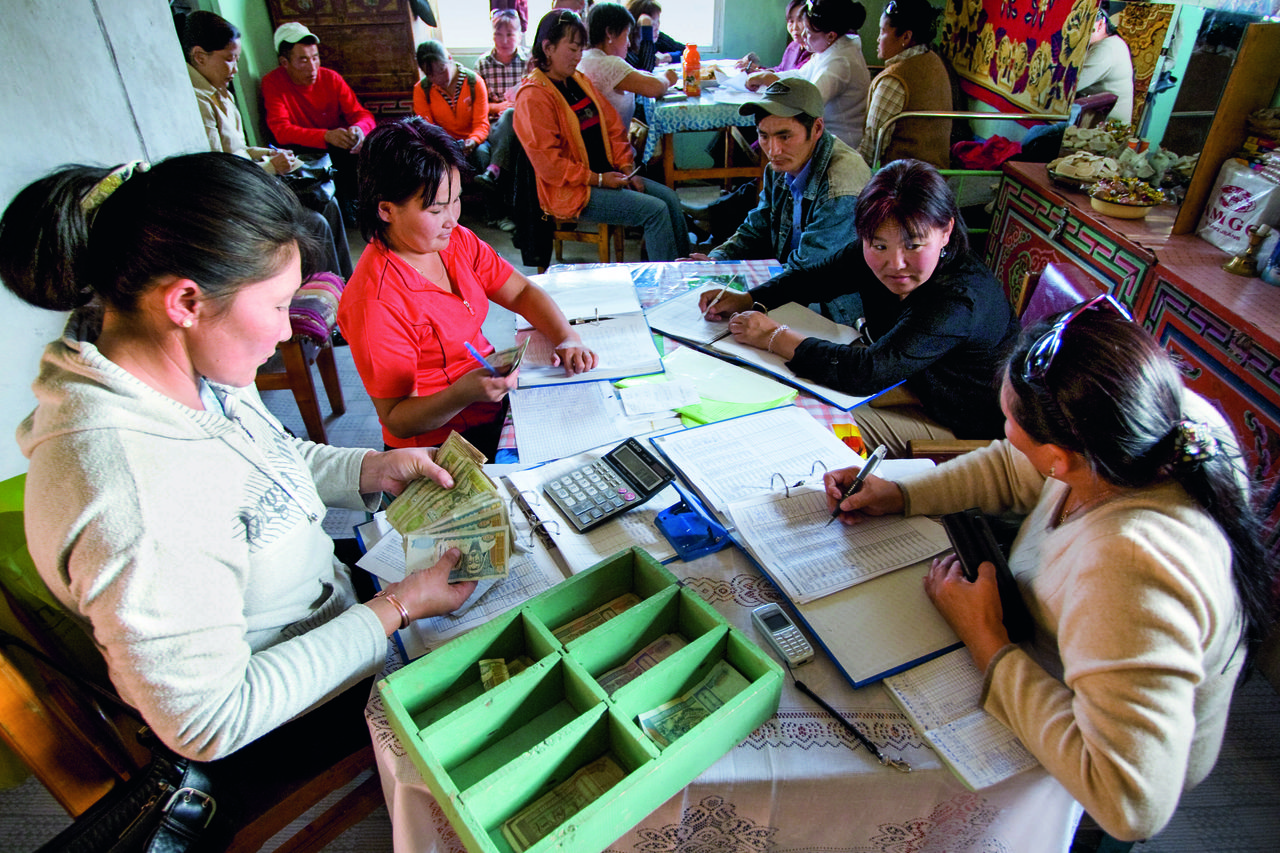
At the most basic level, the home is the nurturing ground of values such as truth or dishonesty, justice or injustice, kindness or violence. And from the home, behaviors rooted in these values radiate through society. For example, when boys are allowed to dominate their sisters within the family, what deters them from doing the same at their school or place of work—or even in national or international arenas? If, instead, sons and daughters are raised so that both participate in household duties and both participate in decision-making, these are the habits they will take out into the world as they grow to adulthood.8See Bahá’í International Community, Toward Prosperity: The Role of Women and Men in Building a Flourishing World Civilization— The Bahá’í International Community’s Contribution to the 61st United Nations Commission on the Status of Women (March 2017), 4. Efforts to nurture values that promote gender equality at the roots of community life are clearly key to change.
The purpose of the institute process which the Bahá’í community has been developing since 1996 (see “A New Institution of Learning,” in this volume) is to develop capacities in participants—women and men, boys and girls—to contribute to the spiritual and material advancement of their societies. The first quotation in the first book of the curriculum invites them to reflect on a statement of Bahá’u’lláh regarding their role as individuals: “The betterment of the world can be accomplished through pure and goodly deeds, through commendable and seemly conduct.”9Cited in Shoghi Effendi, The Advent of Divine Justice (Wilmette, Ill.: Bahá’í Publishing Trust, 1984), 24–25. The materials train participants to engage in behavior and facilitate activities that contribute directly to the advancement of the communities in which they live. Beyond the basic activities, participants acquire knowledge, skills and insights that equip them to participate in the discourses prevalent in their society and to engage in social action endeavors. Women have been at the heart of all these efforts. What is especially remarkable is that, in the aggregate, despite the vast inequalities between women and men in most societies, globally, women comprise half of those who have completed the first sequence of courses of the training institute—and in all except the first book, women outnumber men. This is also more dramatically the case in the higher sequence of courses where the ratio of women to men is around 60 percent. These remarkable statistics reflect the emphasis that the worldwide Bahá’í community places on the equality of women and men and the essential part that women play in social transformation.
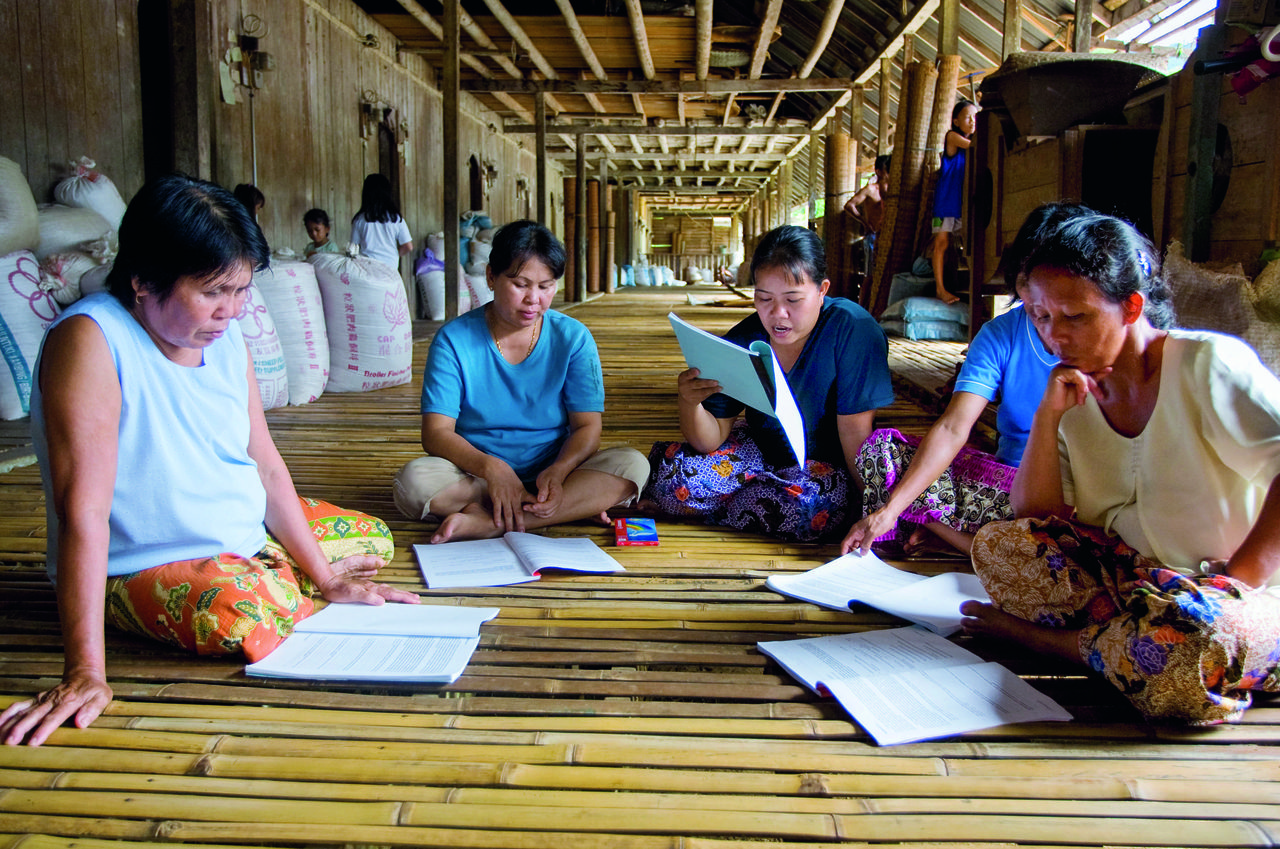
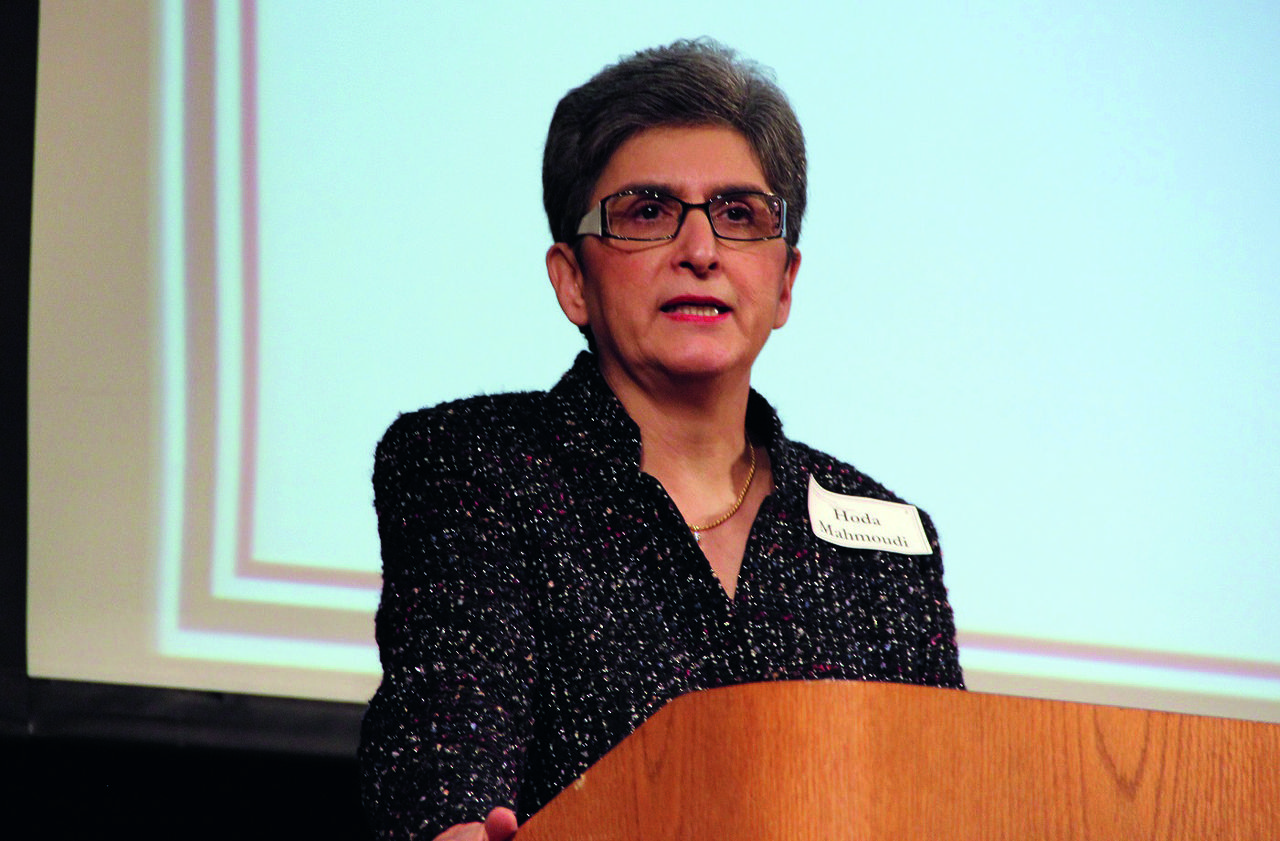
The percentage of women engaged in the educational processes of the institute reveals the central role they have played in promoting it in their own communities and in its dissemination to other parts of the world. Many of those who complete institute courses continue on to serve as tutors, teachers of children’s classes, and animators in the junior youth spiritual empowerment program. One example illustrating the level of female empowerment that has been achieved originates in the Central African Republic: In 2014, while only 20 percent of primary teachers in the national educational system were women, the percentage of primary teachers in community schools raised up through the training institute was 55 percent—rising to 60 percent in rural areas. Around the world, the level of women’s participation as animators and coordinators in the junior youth program is comparable. Such a level of engagement is a strong indicator of the effectiveness of the training institute in the enfranchisement of women and girls.
Specific attention is given to identifying, training, and accompanying women in their efforts, including practical actions related to program delivery. These include the decentralization of training seminars to allow women to participate close to home and the provision of childcare to mothers. Furthermore, the training institute materials themselves, as well as those developed for the junior youth spiritual empowerment program and other Bahá’í-inspired education programs, such as the Preparation for Social Action and community schools programs, all promote the principle of gender equality, whether explicitly or implicitly. For example, of the nine texts developed for the junior youth program by 2017, seven mention the equality of women, the advancement of women, or the education of girls, while more than half of the units in the Preparation for Social Action program make explicit reference to the theme.
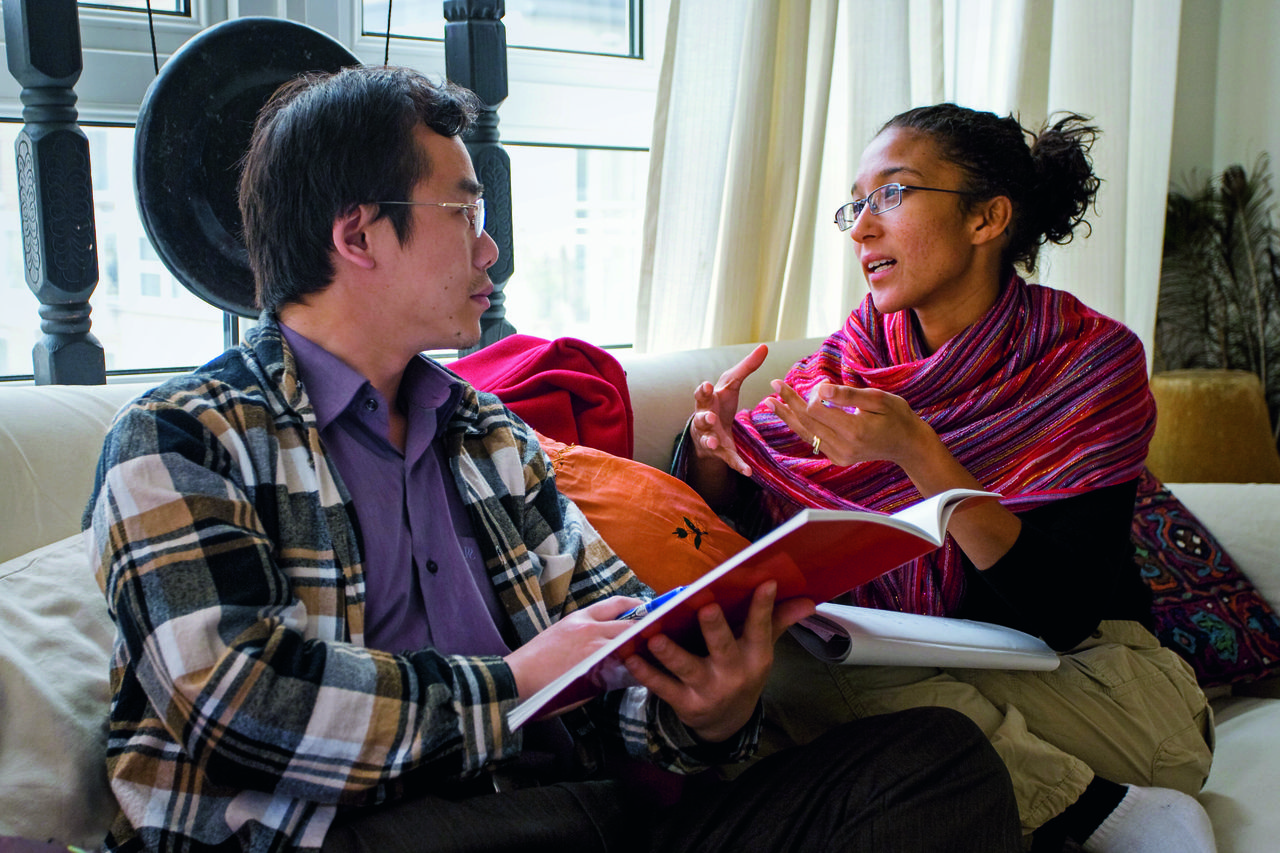
Assisting women to develop capacities through collaborative study, action, and reflection helps change culture by breaking down prejudices of sex and gender. Experience with community schools in Africa and Asia has shown that those starting with female teachers are more sustainable over the first few years than those starting with men. Women have been better able to persevere through this unstable period with little remuneration, while pressure on men to provide for their families makes it difficult for them to sacrifice to that level. Beyond the obvious benefits of sustainable educational opportunities, village councils are now beginning to appoint women teachers to serve on community development and administrative committees—positions that were previously filled only by men.
Clearly, when women and men and boys and girls all become advocates for gender equality, everyone benefits. Sometimes the steps towards such change are dramatic, and sometimes they are incremental. For example, the holding of gatherings to join with others in prayer may seem like a simple activity, but in a village in India, these gatherings have provided rare community acceptance for women to leave their houses. As a result, the “long-standing system requiring women to seclude and isolate themselves is starting to give way” as participants realize that long-established customs are less important than educating children, consulting with each other to solve problems together—and allowing women to participate in community activities.10See Bahá’í International Community, Leadership for a Culture of Equality, in Times of Peril and Peace: A Statement of the Bahá’í International Community to the 65th session of the UN Commission on the Status of Women (February 2021), 4–5.
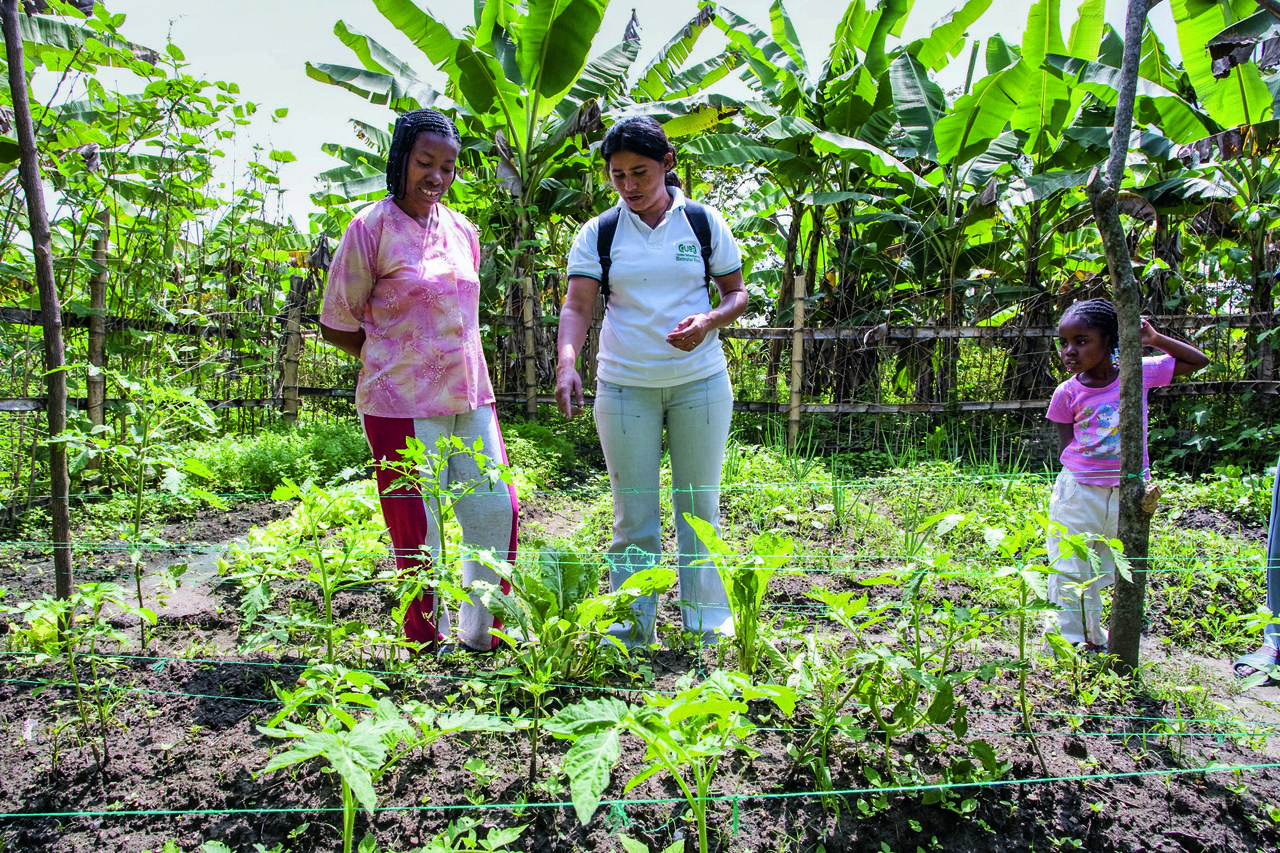
The proliferation of such efforts worldwide is helping to advance the creation of social environments and structures capable of meeting the needs of this age. Challenges such as social inequities, climate change, and global health emergencies, to mention a few, show in starker and starker relief the inadequacy of current outmoded customs and systems to deal with them. Advancing the role of women will undoubtedly serve to better equip humanity to address the ordeals it faces. As the Bahá’í International Community stated in 2021:
Against the backdrop of a world undergoing profound change, there is a growing recognition of the indispensable role that women in leadership play. In the early days of the coronavirus pandemic, nations in which women contributed more prominently to the leadership of society were seen to have generated a degree of stability across a variety of short-term indicators, including public health and economic security. At the community level, women continue to play an indispensable role—and often lead—in caring for the sick, educating the young, tending to the needy, and sustaining the social and economic fabric more broadly. Never has it been more clear how much humanity benefits when women’s leadership is embraced and promoted at every level of society, whether in the family or the village, the community or local government, the corporation or the nation.11Bahá’í International Community, Leadership, 1.
With regard to the issue of climate change, while it is true that women are greatly impacted by its negative effects on the natural environments from which they earn their living in many parts of the world, they are also equipped to respond to it. Experience is proving that participation in the institute courses has provided women with skills to deal with this issue at the grassroots level. For example, when a major cyclone hit Dili, in Timor-Leste, and cut off external assistance, participants in the training institute courses used the skills and networks they had formed through their collaborative study to assist more than 7,000 people across 13 villages and neighborhoods with access to food and other essentials. And in Okcheay, Cambodia, a tree-planting project that had been devised by youth participants protected roads in the area from soil erosion when severe flooding occurred several years later.
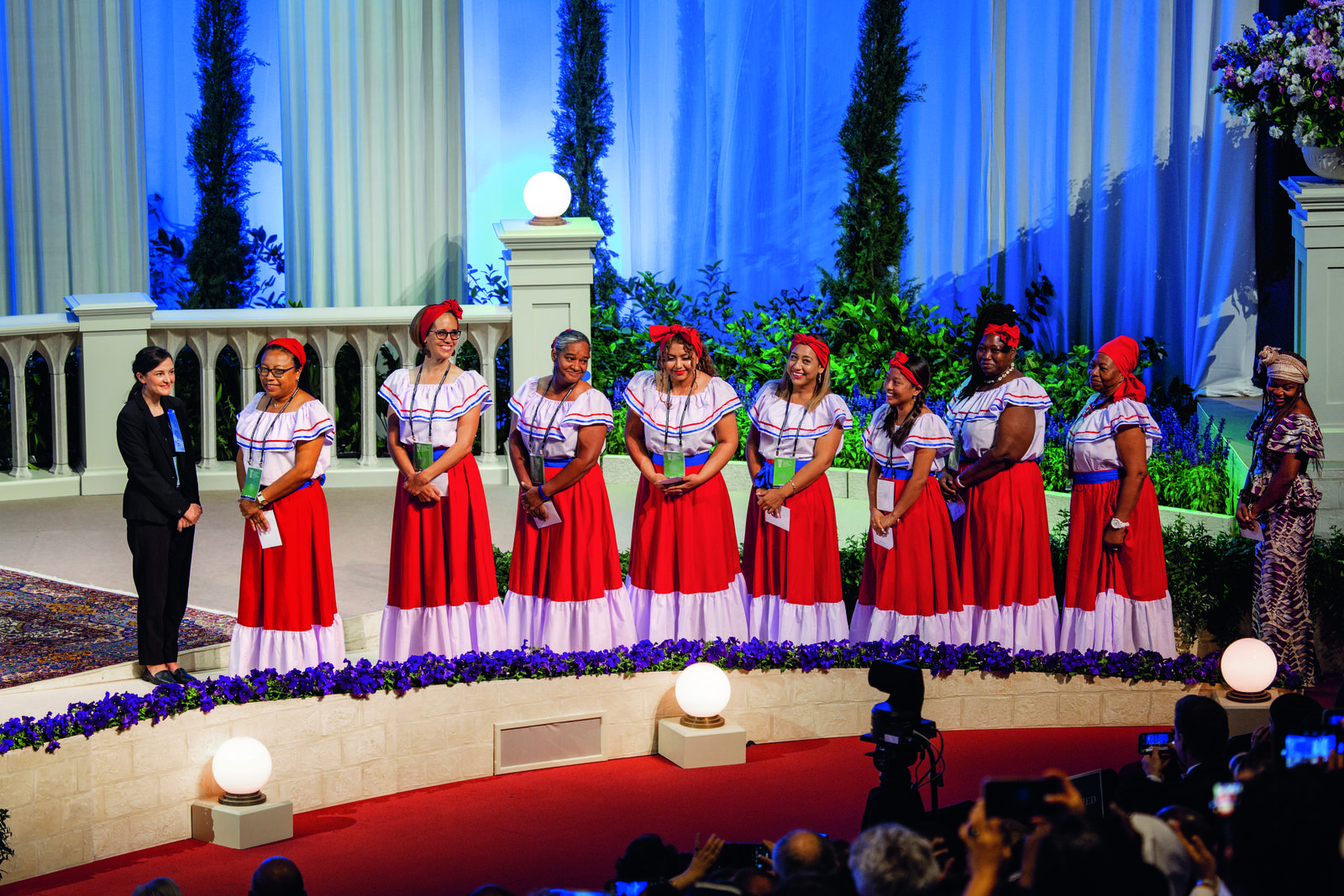

While difficult to live through, unstable periods provide humanity with opportunities to examine our collective values. Women, the Bahá’í writings assert, must have their rightful place as equals to men in every sphere of human endeavor, contributing at every level of decision making and bringing their capacities to bear on the fortunes of their communities, societies, and all of humankind.
DEVELOPING CAPACITIES AND ADMINISTRATIVE MEMBERSHIP
At the global level, experience has shown that increased emphasis on the education of women and girls results in a corresponding rise in the level of their participation in public life and community affairs.12See Bahá’í International Community, Toward a New Discourse, 5. Likewise, the Bahá’í community has witnessed, as a result of its efforts to develop the capacities of participants through its worldwide training institute process, a substantial increase in the membership of women on institutions within the Bahá’í community and their shouldering of administrative responsibilities.
The administrative order of the Bahá’í world community is composed of both elected and appointed arms. As of 20 April 2021, some 42 percent of those elected to serve on the 174 National Spiritual Assemblies around the world were women, rising from about 30 percent in 1994–95. The ratio of women serving as office-bearers rose to 35 percent, compared to 19 percent in 1983, and some 53 percent of those serving as the principal executive officer (titled “National Secretary”) were women. Membership of women on Regional Bahá’í Councils was about 46 percent. When considered in the global context of women’s representation in governing institutions, such a high percentage of membership is impressive. These figures are worldwide results, including numerous societies where equality may not yet be accepted even in principle. It indicates a growing embrace of the spiritual principle of gender equality by the men and women who elect their institutions through secret ballot as well as confidence in women’s administrative capacities.
On the appointed institutions, the percentage of women members is even higher—an indication of the attention given to identifying women of capacity and enlisting them to serve. As of April 2020, of the nine members comprising the International Teaching Centre, 56 percent were women, rising from 29 percent in 1973, when it was established. Of the 90 members of the Continental Boards of Counsellors, 47 percent were women (up from 19 percent in 1968 when the Continental Boards were created, and 52 percent of the 1,059 members of the Auxiliary Boards around the world were women.13Statistics supplied by the Department of Statistics at the Bahá’í World Centre.
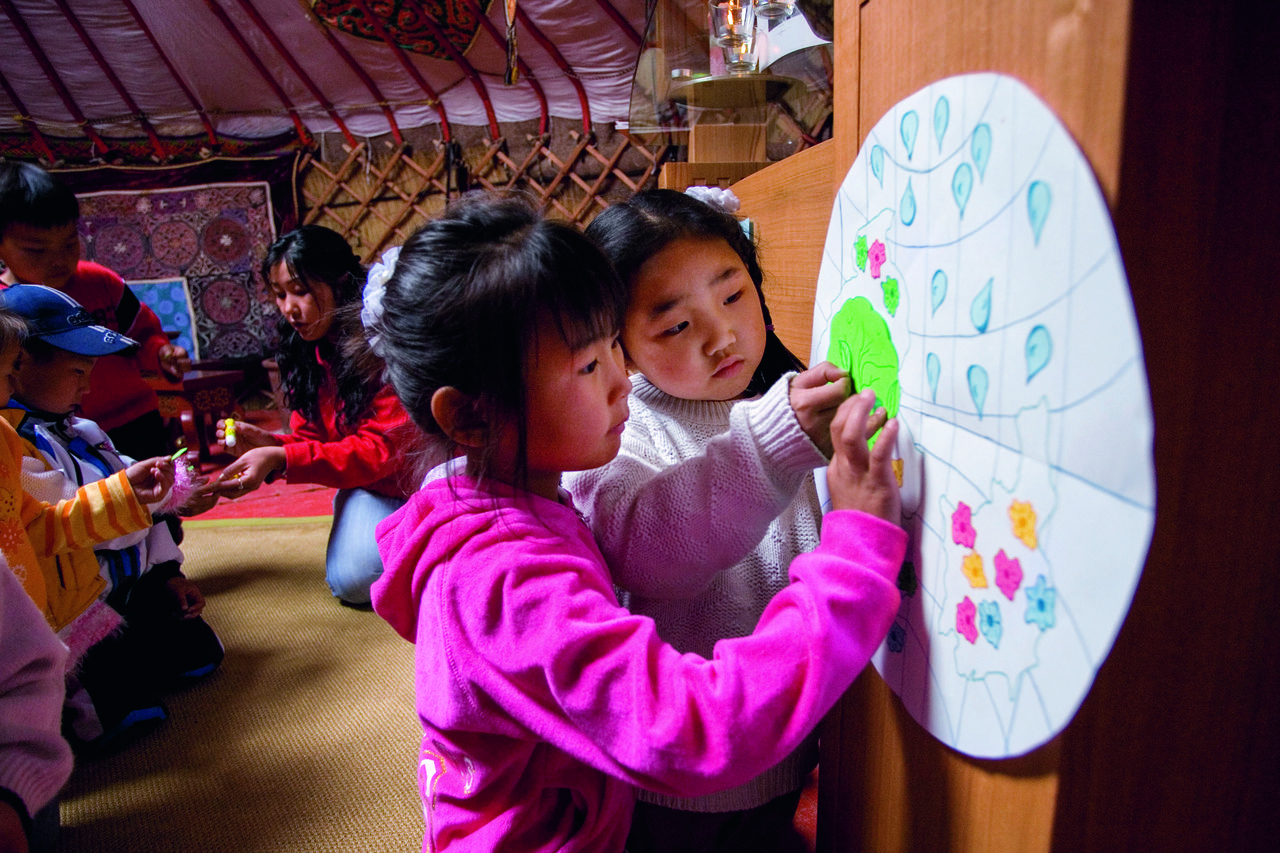
While there are variations among the continents in the percentage of women members, particularly on the elected institutions, the steady move towards more gender-balanced membership indicates an increased understanding of ‘Abdu’l-Bahá’s statement “Not until the world of women becomes equal to the world of men in the acquisition of virtues and perfections, can success and prosperity be attained as they ought to be.”14First Tablet to The Hague (17 December 1919), https://www.bahai.org/r/960386727.
ON THE INTERNATIONAL FRONT: PARTICIPATION IN DISCOURSES AT THE UNITED NATIONS
At the international level, the Bahá’í International Community (BIC) has advocated for the equality of women and men since the inception of the United Nations, making its first statement on gender equality in 1947. Shortly after it became an accredited non-governmental organization (NGO) in 1970, it began to advocate for the girl child. In 1974, as an NGO member of the UN Commission on the Status of Women, the BIC made a statement to the twenty-fifth Session of the Commission that recommended greater emphasis on the importance of educating girls. With regard to this topic, the Bahá’í International Community was ahead of its time. Over the decades, as the UN gave greater attention to the issue of the girl child and many other international organizations focused on it as a strategy for development, the BIC has continued to advocate for girls’ education and has made numerous official statements about it. The BIC has also collaborated with other NGOs and entities such as the United Nations Children’s Fund (UNICEF) and continues to serve on UNICEF’s NGO Working Group on Girls. The BIC was also one of the earliest proponents at the United Nations of the idea that men and boys play an important role in promoting gender equality, particularly that their full development depends upon the advancement of women, since a society based on gender equality serves the interests of both women and men.15See Bahá’í International Community, The Role of Men and Boys in Achieving Gender Equality—A Statement Prepared for the United Nations Commission on the Status of Women at its 48th Session Item 3a of the Provisional Agenda (2004).
In its statements and in discourses at the United Nations, the BIC has addressed topics as diverse as gender and leadership, violence against women and girls, the climate crisis as a catalyst for nurturing a more gender-balanced culture, the role of women as well as men in establishing a flourishing world civilization, transforming the structures of society, and religion and gender equality.
On this last theme, while acknowledging that religion has often been seen as a negative force, the Bahá’í International Community has urged the open examination of religion as “a basis for social and political mobilization” and has advocated for a discourse centered around three themes: the role of religious leaders in supporting gender equality, the role of men and boys in demonstrating “new understandings of masculinity,” and religious interpretations that discriminate against women and thus serve as an impediment to peace.16Toward a New Discourse, 6–7.
While it has always related its contributions to UN discussions on gender equality to spiritual principle, by 2008, the BIC began to draw as well on the rich experience of the Bahá’í community to contribute to the advancement of civilization. The film Glimpses into the Spirit of Gender Equality, produced on the twenty-fifth anniversary of the Beijing conference, combines footage from the United Nations, tracing the BIC’s efforts to advocate for the education of girls and for gender equality, with stories from the grass- roots.17The film is accessible at https://www. youtube.com/watch?v=lqOeUNMEpAI. 18. See Bahá’í International Community, Developing New Dynamics, 2. It showcases the experiences and initiatives of individuals, families, community members, and village leaders in Colombia, India, Malaysia, the United States, and Zambia, to illustrate how even small steps can contribute to change in a culture. The film offers insights gleaned from efforts made over the past 25 years to apply Bahá’u’lláh’s teachings regarding equality in different communities and settings. It conveys how the lessons being learned at the grassroots reinforce efforts being made in international fora for the advancement of women, providing a view of what has been learned thus far about building a civilization that values and nurtures both material and spiritual qualities in all its members.
CONCLUSION
In the long process of building a global civilization, sustained and coordinated action to establish gender equality is vital. While the Bahá’í community can take stock of its progress in this regard and the insights it has gleaned over almost 200 years in a growing variety of settings, the work is far from done. Efforts to nurture strong, vibrant communities in which women and men strive in dynamic partnership to build an equitable society must be extended and deepened.18 In this work, the community derives its vision and its impetus from statements such as the following, made by ‘Abdu’l-Bahá in 1912, during His travels in North America: “… until woman and man recognize and realize equality, social and political progress here or anywhere will not be possible. For the world of humanity consists of two parts or members: one is woman; the other is man. Until these two members are equal in strength, the oneness of humanity cannot be established, and the happiness and felicity of mankind will not be a reality.”18The Promulgation of Universal Peace no. 32, 2 May 1912.